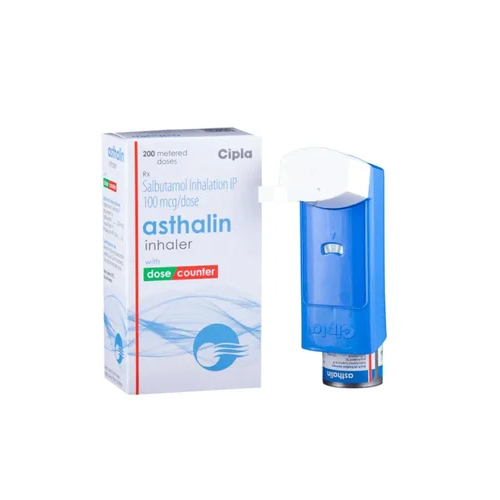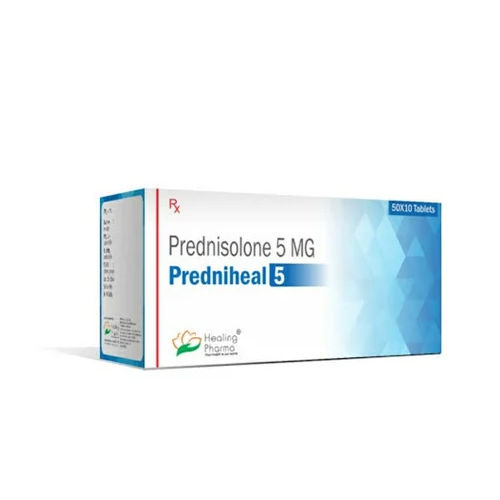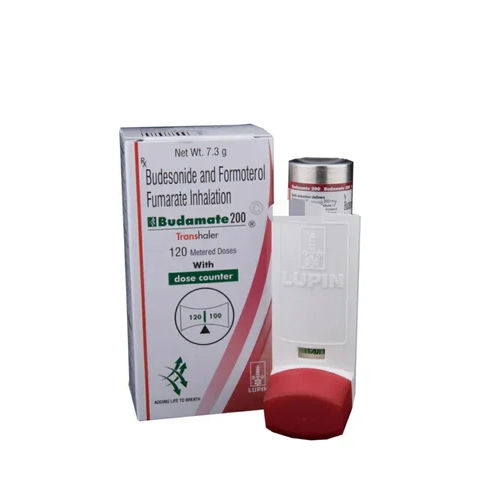
Cipla Asthalin Inhaler
Product Details:
- Drug Type Other Types
- Physical Form Liquid
- Dosage As suggested
- Dosage Guidelines As Suggested
- Storage Instructions cold & dry place
- Click to View more
Cipla Asthalin Inhaler Price And Quantity
- 450 INR/Piece
- 10 Piece
Cipla Asthalin Inhaler Product Specifications
- As suggested
- As Suggested
- Liquid
- Other Types
- cold & dry place
Cipla Asthalin Inhaler Trade Information
- Western Europe Central America North America Eastern Europe Middle East South America Asia Australia Africa
Product Description
As a rescue inhaler, Cipla Asthalin Inhaler is typically used to treat sudden or serious breathing problems. It can also be taken prior to exercise to avoid bronchospasm brought on by such activity.
Cipla Asthalin Inhaler may cause negative effects, however not everyone will, as with any drug. Shaking, anxiety, headaches, and an accelerated heart rate are typical adverse reactions. Chest pain, abnormal heart rhythm, and allergic responses are only a few rare but dangerous adverse effects.
FAQ
1. How does the Cipla Asthalin Inhaler work?
Ans - Salbutamol, a drug used to treat bronchospasm brought on by asthma and chronic obstructive pulmonary disease (COPD), is found in the Cipla Asthalin Inhaler.
2. How does the Cipla Asthalin Inhaler function?
Ans - The Cipla Asthalin Inhaler helps the patient breathe more easily by relaxing the airways.
3. What negative effects might the Cipla Asthalin Inhaler cause?
Ans - Headache, nausea, throat irritation, and dry mouth are among the side effects of Cipla Asthalin Inhaler that are frequently reported.
4. How do I utilise the Cipla Asthalin Inhaler?
Ans - Use the Cipla Asthalin Inhaler only as prescribed by a physician. Before using, make sure to thoroughly read the directions.
5. What should I do if Cipla Asthalin Inhaler causes an allergic reaction?
Ans - Stop taking the inhaler and get emergency medical help if you have an adverse reaction.
 English
English Spanish
Spanish French
French German
German Italian
Italian Chinese (Simplified)
Chinese (Simplified) Japanese
Japanese Korean
Korean Arabic
Arabic Portuguese
Portuguese






